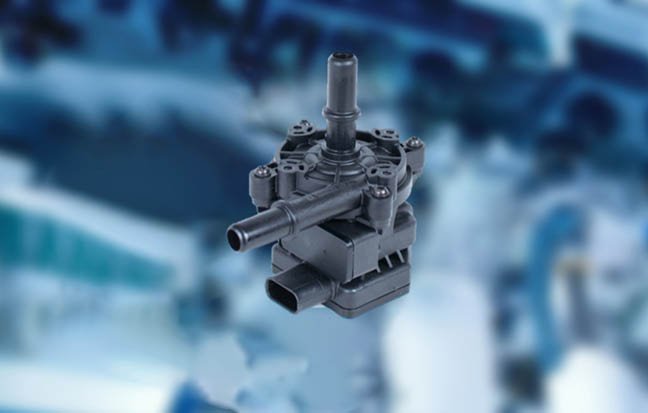Rheinmetall's electric vapor pump is already on the market as the first of its kind, efficiently improving fuel combustion and reducing pollutant emissions in the fuel tank area. The corporation has now further developed this technology for use in sensor cleaning in order to offer a more efficient, quieter and more cost-effective solution. The ordered products are to be manufactured in the factory of the corporation's subsidiary Pierburg in Kunshan, China. The development of the product not only marks an important expansion of the range of applications for Rheinmetall's electric vapor pump. The technology group's ability to develop future-oriented products, and its innovative strength are also demonstrated by the product's use in the future market of autonomous driving, which involves a complex system of high-precision sensors.
The innovative product primarily handles the drying process after sensor cleaning by quickly drying the cleaning fluid on the sensor surface through fast and precise control, ensuring uniform drying of the sensor surface and prevention of performance issues due to uneven moisture. In modern vehicles, this product is typically integrated into the sensor cleaning system. It can be started automatically without manual intervention after sensor cleaning, improving the efficiency and convenience of the cleaning process. The product is designed for durability and reliability, and can operate stably under a range of environmental conditions, ensuring continuity and consistency in the sensor cleaning and drying process. Rheinmetall's portfolio in the field of sensor cleaning is further complemented by two magnetic valves that control the flow of compressed air and water onto the sensor.
The complex network of high-precision sensors that is essential for autonomous driving systems ranges from GPS/IMU systems that ensure the exact position of the vehicle via LIDAR, which creates detailed maps of the surrounding area as far as to cameras that capture real-time road conditions. In this context, each link depends on the precise ‘touch’ of the sensors. They are like the ‘smart eyes’ and ‘sharp ears’ of autonomous vehicles. Their cleanliness and operating condition are crucial for driving-safety and vehicle efficiency. However, in complex and variable environments, sensors are susceptible to contamination from dust, oil and other pollutants, which can affect the accuracy and stability of their perception. Therefore, an efficient sensor cleaning system is indispensable for the long-term stable operation of autonomous vehicles.
With the continuous development of autonomous driving technology and the increasing market demand, widespread use in logistics, public transport, taxis and other areas is approaching. Rheinmetall expects further market potential in the future for its innovative and intelligent solutions in the field of modern, future-oriented mobility applications.


